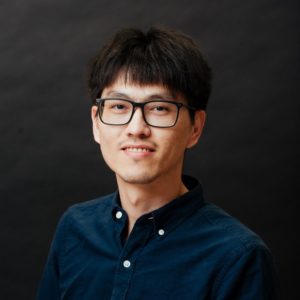 Dr. Heyang Yuan is an Assistant Professor in the Department of Civil and Environmental Engineering at Temple University. Prior to joining Temple, he worked as a postdoctoral research associate at the University of Illinois at Urbana-Champaign. He received his B.Sc., M.Sc., and Ph.D. from Tongji University (2011), the Technical University of Munich (2013), and Virginia Tech (2017), respectively. Dr. Yuan’s research is focused on developing new environmental biotechnology for water/wastewater treatment and energy/resource recovery. He is also interested in understanding the microbial ecology and the ecophysiology of the functional populations in various bioprocesses, as well as developing genomics-enable models for those bioprocesses. His research articles have received about 1,500 citations, and his research is funded by the United States Department of Agriculture and National Science Foundation.
Dr. Heyang Yuan is an Assistant Professor in the Department of Civil and Environmental Engineering at Temple University. Prior to joining Temple, he worked as a postdoctoral research associate at the University of Illinois at Urbana-Champaign. He received his B.Sc., M.Sc., and Ph.D. from Tongji University (2011), the Technical University of Munich (2013), and Virginia Tech (2017), respectively. Dr. Yuan’s research is focused on developing new environmental biotechnology for water/wastewater treatment and energy/resource recovery. He is also interested in understanding the microbial ecology and the ecophysiology of the functional populations in various bioprocesses, as well as developing genomics-enable models for those bioprocesses. His research articles have received about 1,500 citations, and his research is funded by the United States Department of Agriculture and National Science Foundation.
Read Heyang Yuan’s Emerging Investigator article “Emerging investigator series: Modeling of Wastewater Treatment Bioprocesses: Current Development and Future Opportunities” and read more about him in the interview below:
Your recent Emerging Investigator Series paper focuses on Modeling of Wastewater Treatment Bioprocesses: Current Development and Future Opportunities. How has your research evolved from your first article to this most recent article?
Mechanistic and data-driven models as two well-established tools to simulate engineered bioprocesses have their inherent problems. I have built both types of models for different bioreactors and, like many other researchers, have experienced difficulty and frustration when performing laborious calibration of my models. In the last year of my Ph.D. study, I was fortunate to have several insightful conversations with collaborators and academic peers and came across a Nature Method paper that reconstructed microbial communities using artificial neural networks. It is at that time I started to think about the possibility of incorporating genomic data into model construction. The idea has been continuously tested in our lab using population dynamics (16S rRNA amplicon sequencing data) and function dynamics (metatranscriptomic data) to train data-driven and hybrid models over the past three years and is now one of the main thrusts of my research.
What aspect of your work are you most excited about at the moment?
Incorporating genomic data into model construction can potentially lead to robust and interpretable extrapolation of system performance, thus allowing us to design and optimize new bioprocesses in silico. This will ultimately accelerate the development and implementation of more sustainable environmental biotechnology in a cost-effective way and profoundly change how we conduct experimental research.
In your opinion, what are the most important questions to be asked/answered in this field of research?
I am deeply intrigued by the methodology used to study environmental biotechnology and microbiology and always ask two questions: 1) are the methods adequate to elucidate the mechanisms underlying the observations, and 2) how we can develop new methods to better elucidate the mechanisms.
What do you find most challenging about your research?
As a self-trained basketball player, most of my college time was spent on the court, and our team used to win a championship. Over the past five years, my skills and stamina have inevitably degenerated due to lack of training. It became even more difficult to find time for basketball since my son was born and I started my current position. Balancing life and work seems to be an everlasting challenge for most people in academia.
In which upcoming conferences or events may our readers meet you?
I am excited to present our recent work on genomics-enabled hybrid modeling at the Association of Environmental Engineering and Science Professors (AEESP) Research and Education Conference at Washington University in St. Louis in June 2022.
How do you spend your spare time?
Playing with my three-year-old son (that is actually how I spend most of my daytime).
Which profession would you choose if you were not a scientist?
War photographer.
Can you share one piece of career-related advice or wisdom with other early career scientists?
One thing I have learned over the years is that mental strength is built based on physical strength. Regular exercise makes me think more proactively, and work can be done much more efficiently. (Speaking of which, I am going to unpack that Nintendo Switch Ring Fit Adventure I bought a month ago right away.)










